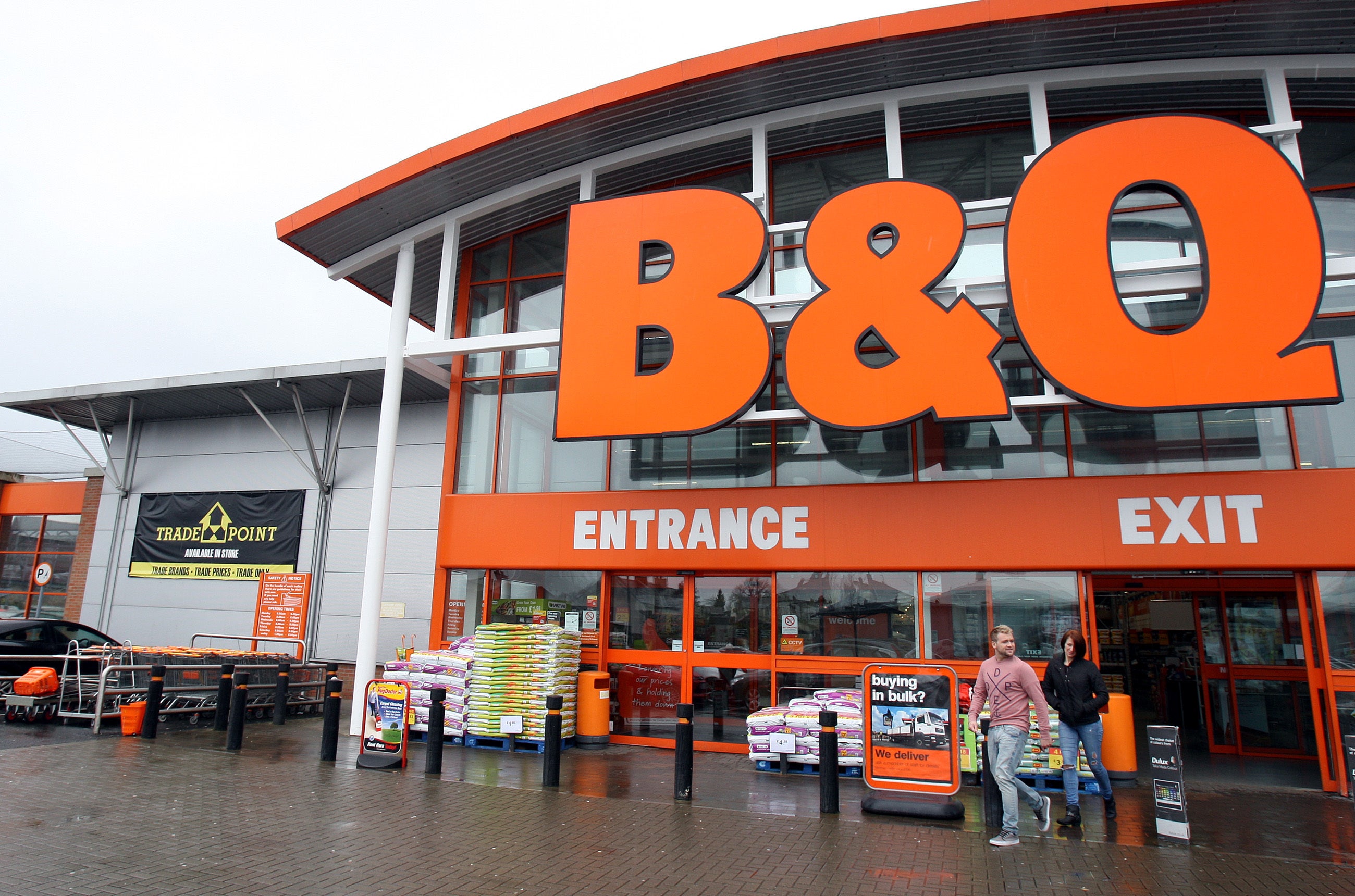Kingfisher sees profits slide 30% following pandemic DIY boom
The B&Q owner said its adjusted pre-tax profits plummeted by 29.5%, at £472 million in the first half of 2022 compared with £669 million last year.

Your support helps us to tell the story
From reproductive rights to climate change to Big Tech, The Independent is on the ground when the story is developing. Whether it's investigating the financials of Elon Musk's pro-Trump PAC or producing our latest documentary, 'The A Word', which shines a light on the American women fighting for reproductive rights, we know how important it is to parse out the facts from the messaging.
At such a critical moment in US history, we need reporters on the ground. Your donation allows us to keep sending journalists to speak to both sides of the story.
The Independent is trusted by Americans across the entire political spectrum. And unlike many other quality news outlets, we choose not to lock Americans out of our reporting and analysis with paywalls. We believe quality journalism should be available to everyone, paid for by those who can afford it.
Your support makes all the difference.B&Q owner Kingfisher has reported a 30% drop in profits as the company battled higher prices for raw materials and energy and sales slowed following the pandemic DIY boom.
Shares in the DIY giant fell by more than 5% on Tuesday morning as investors reacted to the company results.
The FTSE 100-listed firm said its adjusted pre-tax profits plummeted by 29.5% to £472 million in the first half of the year compared with £669 million a year ago.
The DIY giant brought in £6.8 billion in sales in the six months to July 31, a 4.1% fall from the £7.1 billion reported in the same period last year, but in line with analysts’ expectations.
Looking to the months ahead, although trading in the year to date has been in line with our expectations, we remain vigilant against the more uncertain economic outlook for the second half
Kingfisher said it felt the impact of raw materials such as metal and plastic becoming more costly, as well as ongoing global supply chain disruption caused by higher demand, congestion at ports and the impact of Covid lockdowns.
The group warned that it expects inflation pressures to persist in the second half of the year even though raw material prices have dropped from recent highs and freight costs have slowed since January.
This is because of the time lag between ordering more expensive products and subsequently selling them, the group said.
The firm, which employs around 80,000 staff across eight countries, noted resilient sales across outdoor and ‘big-ticket’ items despite many households feeling their wages squeezed by rising living costs.
Kingfisher said sales were exceptionally higher in 2021 following a boom in the popularity of home improvements coinciding with Covid lockdowns.
Thierry Garnier, Kingfisher’s chief executive, said: “Kingfisher has delivered a very resilient first half of sales.
“While facing very strong comparatives from the prior year as well as a more challenging environment, like-for-like sales were 16.6% ahead of pre-pandemic levels with a sequential improvement from the first quarter to the second quarter.
“Looking to the months ahead, although trading in the year to date has been in line with our expectations, we remain vigilant against the more uncertain economic outlook for the second half.
“We are therefore focused on delivering value to our customers at a time when they need it most.”
Kingfisher is swimming against a strong tide of tough comparatives and a deteriorating economic outlook
Richard Hunter, head of markets at Interactive Investor, said: “Kingfisher is swimming against a strong tide of tough comparatives and a deteriorating economic outlook, although over a longer term view progress is still being made.
“Despite an initial bounce in early trade, the share price reaction is a clear indication of the decision investors have made, with the price having fallen by 33% over the last year, as compared to a gain of 4.8% for the wider FTSE 100.
“Nor does the pressure ease on what could be an extremely challenging outlook as economic conditions continue to deteriorate – the market consensus of the shares as a sell suggests not only a tough time to come, but also perhaps better prospects elsewhere.”